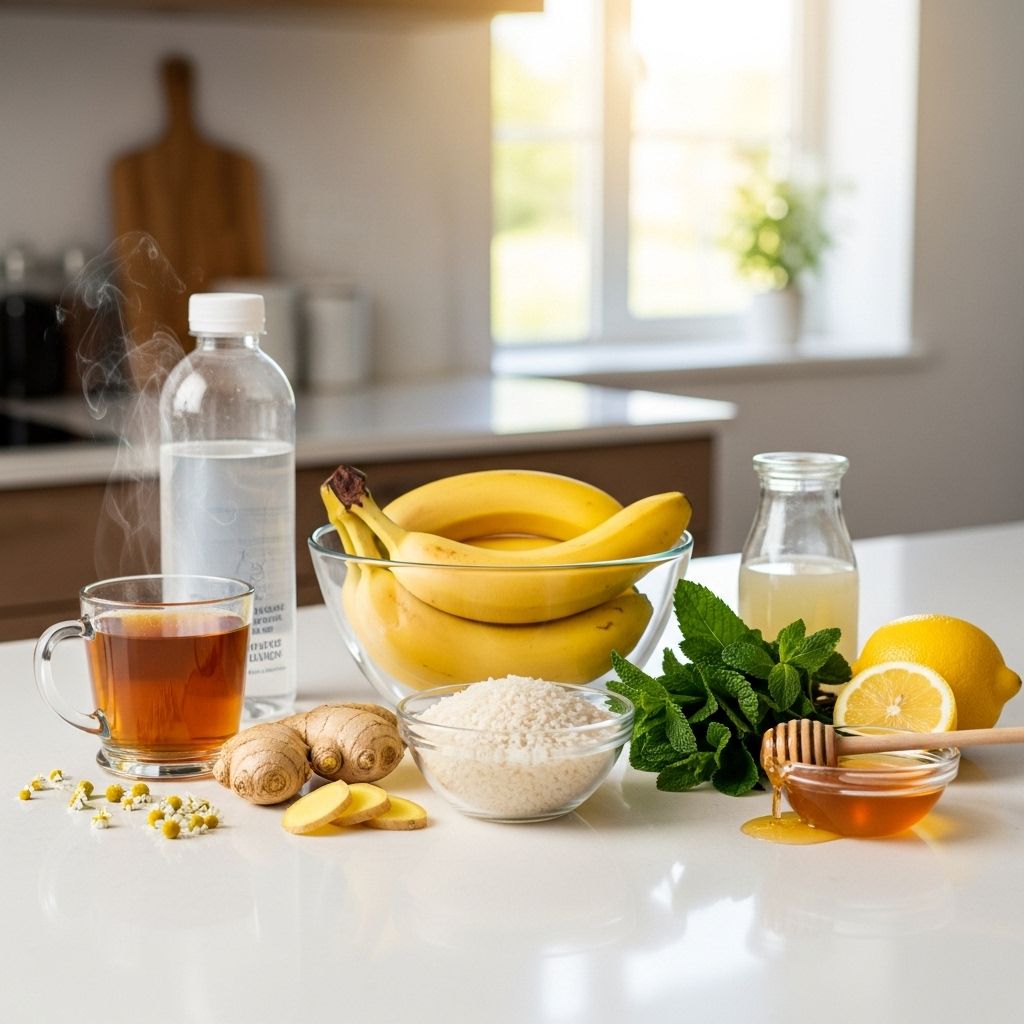Effective Home Remedies for Diarrhea: Causes, Treatments, and Prevention
Discover proven home remedies and lifestyle tips to manage diarrhea naturally and safely at home.

Table of Contents
- Introduction
- What Causes Diarrhea?
- Symptoms of Diarrhea
- Top Home Remedies for Diarrhea
- Dietary Recommendations
- Importance of Hydration
- Foods and Drinks to Avoid
- Prevention and Lifestyle Tips
- When to See a Doctor
- Frequently Asked Questions (FAQs)
Introduction
Diarrhea is a common digestive issue that affects people of all ages, characterized by frequent, loose, or watery stools. While usually not serious, it can lead to dehydration and discomfort. Fortunately, many cases of diarrhea can be managed effectively at home with simple remedies, dietary adjustments, and proper hydration. This guide explores the causes, symptoms, and most effective home treatments for diarrhea, along with practical tips for prevention and when to seek medical attention.
What Causes Diarrhea?
Diarrhea can be triggered by a variety of factors, including:
- Viral infections (such as norovirus or rotavirus)
- Bacterial infections (food poisoning, E. coli, Salmonella)
- Parasitic infections
- Food intolerances (lactose intolerance, gluten sensitivity)
- Medications (antibiotics, antacids containing magnesium)
- Chronic digestive conditions (irritable bowel syndrome, inflammatory bowel disease)
- Stress and anxiety
Understanding the underlying cause can help tailor the most effective treatment strategy.
Symptoms of Diarrhea
Common symptoms include:
- Frequent loose or watery stools
- Abdominal cramps or pain
- Bloating and gas
- Nausea and sometimes vomiting
- Fever (in cases of infection)
- Dehydration signs (dry mouth, thirst, dizziness, reduced urine output)
Mild cases often resolve within a day or two, but persistent diarrhea warrants medical attention.
Top Home Remedies for Diarrhea
Several home remedies can help alleviate symptoms and speed up recovery:
Hydration
Staying hydrated is crucial, as diarrhea can lead to significant fluid loss. Drink plenty of water, herbal teas, clear broths, or oral rehydration solutions (ORS) to replenish lost fluids and electrolytes. Avoid beverages that can worsen diarrhea, such as caffeinated, carbonated, or alcoholic drinks.
Rice Water
Rice water is a traditional remedy that helps bind stools and reduces diarrhea duration. To prepare, boil 1 cup of rice in 2 cups of water for about 10 minutes, strain, and drink the cloudy water.
BRAT Diet
The BRAT diet (Bananas, Rice, Applesauce, Toast) consists of bland, low-fiber, starchy foods that are easy to digest and may help firm up stools. These foods also provide essential nutrients like potassium, which is lost during diarrhea.
Herbal Remedies
- Ginger: Ginger tea or roasted ginger can help soothe the stomach, reduce nausea, and improve digestion.
- Peppermint Oil: Peppermint oil may relax intestinal muscles and relieve cramps.
- Guava Leaves: Rich in tannins, guava leaves have antibacterial properties and can help reduce intestinal secretions.
Probiotics
Probiotics, found in yogurt, kefir, sauerkraut, and supplements, can restore the balance of good bacteria in the gut, helping to shorten the duration of diarrhea, especially after antibiotic use.
Other Remedies
- Blueberries: Contain anthocyanosides with antioxidant and antibacterial effects that may relieve diarrhea.
- Rest: Giving your body time to recover is important. Use a warm compress on your abdomen to ease discomfort.
Dietary Recommendations
During and after diarrhea, focus on gentle, easy-to-digest foods:
- White rice, plain pasta, boiled potatoes, and crackers
- Bananas, applesauce, and cooked carrots
- Clear soups and broths
- Plain toast or saltine crackers
Avoid high-fiber, fatty, spicy, or sugary foods until symptoms resolve. Once you start feeling better, gradually reintroduce your regular diet.
Importance of Hydration
Dehydration is the most serious complication of diarrhea, especially in children and older adults. Signs include dry mouth, excessive thirst, dizziness, and reduced urine output. Oral rehydration solutions (ORS) are recommended for effective rehydration, especially for children. For adults, sports drinks or diluted fruit juices can also help.
Foods and Drinks to Avoid
Certain foods and beverages can aggravate diarrhea and should be avoided:
- Dairy products (if lactose intolerant)
- High-fat and fried foods
- Spicy foods
References
- https://www.vinmec.com/eng/blog/how-to-treat-stomach-ache-and-diarrhea-at-home-en
- https://health.unl.edu/4-home-remedies-upset-stomach-plus-6-things-avoid/
- https://www.medicalnewstoday.com/articles/324424
- https://www.healthline.com/health/digestive-health/most-effective-diarrhea-remedies
- https://health.ucdavis.edu/blog/cultivating-health/from-loose-to-locked-up-tips-for-diarrhea-and-constipation-relief/2024/09
- https://www.childrens.com/health-wellness/how-to-treat-diarrhea-in-kids
- https://www.nationwidechildrens.org/conditions/diarrhea
Read full bio of medha deb












